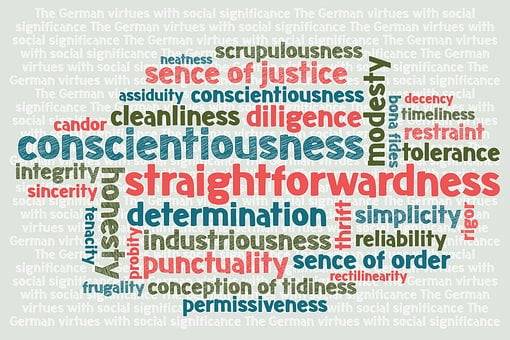
Conscience
Have you ever wondered why some people seem to have an inner voice that guides them in their decisions and actions? That’s the power of conscience! It’s a mysterious force within us that helps us distinguish right from wrong. But what is it exactly, and how does it differ from being conscious? In this blog post, we’ll explore the ins and outs of conscience, including its different types, pros and cons, and the key differences between conscious vs conscience. So buckle up for an exciting journey into the human psyche health as we delve deeper into this fascinating topic!
What is conscience?
Conscience can be defined as a person’s internal sense of right and wrong, which guides their actions and decisions. It is often described as an inner voice that warns us when we are about to do something morally wrong or encourages us to do what is right.
The concept has been debated by philosophers and theologians for centuries, with some believing it to be innate while others argue that it is acquired through socialization. Despite this ongoing debate, most people acknowledge the existence of an inner voice that guides them in ethical decision-making.
Conscience operates on multiple levels – it can be individual or collective, moral or religious-based. Some people have a very strong that influences every aspect of their lives, while others may have a weaker sense of morality.
Ultimately, the power of conscience lies in its ability to shape our behaviour towards what we believe is good and just. By listening to we can become better versions of ourselves and create a more harmonious society based on empathy and compassion rather than selfishness and indifference.
The Different Types of Conscience
Conscience can be divided into different types based on their formation and operation. The first type of conscience is the Synderesis, which refers to the innate knowledge of good and evil present in every human being. It acts as a guiding principle for making moral decisions.
Another type is the Antecedent, which judges an action before it takes place. This kind of relies heavily on personal beliefs and values for decision-making.
In contrast, the Consequent only comes into play after an action has been taken. It evaluates whether or not that particular act was right or wrong and helps individuals learn from their mistakes.
The last type is called Lax, where individuals may have ignored or suppressed their over time due to repeated bad decisions or actions. These people often struggle with making ethical choices since they have lost touch with their moral compass.
Understanding these different types can help us better recognize our own thought processes when faced with difficult decisions. By identifying which type(s) we rely on most heavily, we can work towards strengthening our ability to make sound judgments and live more fulfilling lives morally-speaking.
Pros and Cons of a conscience
A conscience is an important aspect of our moral and ethical decision-making. It’s that little voice inside us that tells us what we should or shouldn’t do. But just like anything else, having a conscience has both its pros and cons.
On the one hand, having a well-developed conscience means we are more likely to make decisions based on our values and principles rather than simply following societal norms. This can lead to more authentic living and a sense of personal integrity.
However, having too strong of a conscience can also lead to rigidity in thinking and behaviour. We may become so focused on doing what we believe is right that we fail to consider other perspectives or possibilities.
Moreover, constantly wrestling with morality can be emotionally taxing. Guilt and shame can arise when we feel like we’ve fallen short of our own standards, leading to feelings of self-doubt.
It’s worth noting that not everyone has the luxury of developing their conscience equally. Factors such as upbringing, culture or religion may influence one’s ability to think freely about certain topics.
In summary, while having a developed sense of morality is generally seen as positive trait – there are potential downsides associated with being guided solely by inner convictions without taking external factors into account
Conscious vs Conscience
When it comes to understanding the difference between conscious vs conscience, it’s important to note that these two terms are often used interchangeably, but they have distinct meanings. Consciousness refers to our awareness of the world and ourselves, while a moral sense of right and wrong.
Consciousness can be described as the state of being awake and aware of one’s surroundings, thoughts, and feelings. It involves sensory perception, mental processing, and self-awareness. Without consciousness, we wouldn’t be able to experience anything in the world around us or within our own minds.
On the other hand, an inner voice that helps us determine what is morally right or wrong. It guides us in making decisions about how we should behave towards others and ourselves. A strong conscience allows us to act with integrity even when no one else is watching.
While both consciousness and conscience are essential for human life, they serve different purposes. Consciousness allows us to interact with the physical world around us while our ensures that we do so in a way that aligns with our values as individuals.
In summary, understanding the difference between conscious vs conscience can help you better understand yourself and your actions in relation to those around you. By developing a strong sense of both consciousness and conscience, you can live an authentic life guided by your own beliefs about what is right and wrong.
Conclusion
Conscience is a crucial aspect of our lives that helps us determine right from wrong. It’s essential to listen to our inner voice and make decisions based on what we believe is right. Understanding the different types of conscience can help us develop a more comprehensive understanding of ourselves and others.
Additionally, it’s important to note the difference between being conscious and having a conscience. While consciousness refers to our awareness of the world around us, having a means that we have an internal moral compass guiding our actions.
Ultimately, cultivating a strong sense of morality and listening to our inner voice can lead us towards living more fulfilling and meaningful lives.






